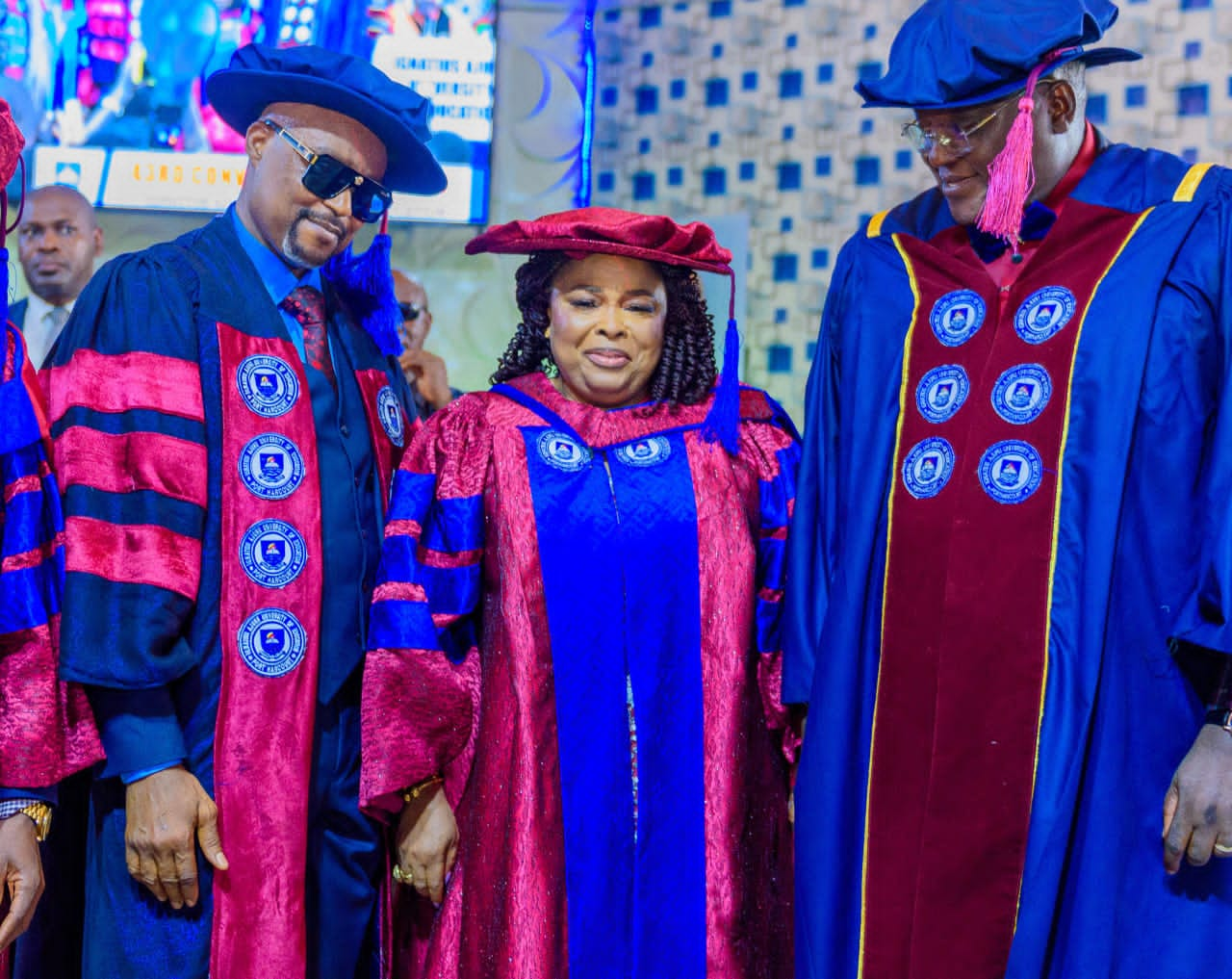Education
Don Proffers Solution For Science/Tech Dev In Post 2015
A University Don, Profes
sor Peter A. Okebukola has proffered solution to Nigeria’s development in science and technology in the post 2015 era.
Professor Okebukola, who gave the solutions in a pre-27th convocation lecture of the Rivers State University of Science and Technology (RSUST) last Thursday, stated that in order for Nigeria not to be a passive participant in development during the course of the 21st century, the country should take fuller advantage of science and technology.
This, he said, the country can do by first increasing investment in science and technology to move closer to 10% of Gross Domestic Product(GDP) through a progressive 0.5% annual increase from 2016.
Second, there should be development of a critical mass of top rate scientists of about 0.01% of the population to be in six centres of excellence with geopolitical spread across the country.
There is also the need for stronger engagement of the private sector in science and technology research with 0.01% tax rebate to the private organisation on all projects implemented in collaboration with a Nigerian university.
Nigeria will also need to improve in the delivery of science education at the basic education level through provision of infrastructure and better trained teachers, and fuller development of the iron and steel industry.
Establishment of science schools as nursery for future scientists, with at least one in each Local Government Area (LGA) beginning from 2016, he said, is another condition.
Others are re-introduction of the higher school certificate to get candidate better prepared for the university and encouraging ground-breaking applied research in science and technology with incentives for researchers and their institution.
It also include greater use of computer technology in the development of devices rather than dependence in manual devices, as well as capacity building of scientists in contemporary methods of scientific research through overseas training preferably in Nobel Prize – wining laboratories.
There is also increased incentives for enrolment in agriculture and science and technology courses, especially enriched package of scholarships, while also providing basic infrastructure such as power, especially through research laboratories.
An essential aspect, he continued, is partnership with developed countries in science and technology for knowledge and skill sharing.
Education
‘Our Target Is To Go Beyond Academic Accomplishments’

The Acting Vice Chancellor of Ignatius Ajuru University of Education, Port Harcourt, Prof. Okechuku Onuchuku, emphasised the need for students to go beyond academic achievements during the university’s 43rd Convocation ceremony.
The theme, “The University Culture In Practice, The IAUE Experience,” highlights the importance of embracing cherished traditions and intellectual values that define great universities.
Prof. Onuchuku encouraged the new graduates to work hard and persevere, noting that their convocation marks a new beginning in their careers and personal lives. He emphasised that they must prove themselves worthy of the certificates and prizes they have received.
According to him, out of 2,887 first-degree graduands, four made First Class, 403 secured Second Class Upper, 2,030 got Second Class Lower, and 450 graduated with Third Class. Additionally, 1,492 postgraduate students graduated, including 306 PhD holders.
The Sole Administrator of Rivers State, Vice Admiral Ibok-Ete Ekwe Ibas (Rtd), praised the university’s commitment to academic excellence and institutional maturity. He commended the Acting Vice Chancellor for achieving full accreditation for 47 academic programmes and implementing the NUC’s Core Curriculum Minimum Academic Standards.
The administrator urged the new graduates to uphold the positive values instilled in them by the university and strive for continuous knowledge and improvement.
By: King Onunwor
Education
Niger Delta Students Suspend Protest Against NDDC In PH

The Niger Delta Students Union Government, Rivers State Chapter (NIDSUG), has suspended its planned protest against the Niger Delta Development Commission (NDDC) state office in Port Harcourt. The suspension followed an intervention by the state Commissioner of Police, CP Olugbenga Adepoju.
The students had planned to protest on Thursday, citing alleged neglect by the NDDC, particularly in welfare and capacity-building programmes for students from the state. However, after the police intervention, the students agreed to participate in a roundtable discussion with the commission to address their concerns.
NIDSUG leader, Comrade Loveday Njoku, expressed dissatisfaction with the commission’s alleged exclusion of students from benefiting from its programmes. He presented a seven-point demand, including the reintroduction of scholarships for undergraduate and postgraduate students. Njoku emphasised that education is crucial for community development and urged the commission to invest in the future leaders of the state.
The students warned that if their demands are not met, they will resume the protest and occupy the state commission office until their demands are addressed. Despite previous attempts to reach out to the commission’s management team, the students claimed their efforts were unsuccessful.
By: Akujobi Amadi
Education
Administrator Inspects School

As part of efforts to improve the welfare and overall quality of education for students in Obio/Akpor Local Government Area, the Sole Administrator, Sir (Dr.) Clifford Ndu Walter DSSRS, FCAI, JP, paid an unscheduled visit to Universal Primary School, Rumukwurusi.
During the visit, Sir Walter expressed deep concern over the deplorable state of the school and its surrounding environment. He reaffirmed his administration’s commitment to the development of the education sector, stressing its critical role in nation-building.
“I have visited the primary school in Ogbogoro, and now I’m here at the Universal Primary School, Rumukwurusi. I am not satisfied with what I’ve seen,” he stated, indicating that more surprise visits to schools would follow.
To address the issues, the Sole Administrator directed the Council Engineer to commence process for rehabilitation of the school.
The visit was part of a broader initiative aimed at conducting on-the-spot assessments of educational facilities to determine the level of intervention required by the local government council.
Dr. Walter also assured the teachers of his unwavering commitment to revamp the school and improve the learning environment for both staff and students.

